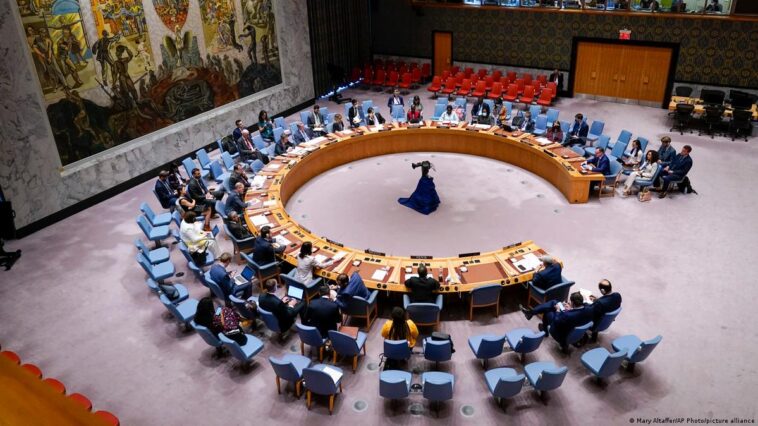United Nations: Monday at a United Nations Security Council meeting, the United States, China, and Russia argue over who was to blame for North Korea’s dozens of ballistic missile launches and development of a nuclear weapons programme.
The 15-member council convened to discuss Pyongyang’s alleged launch of its largest intercontinental ballistic missile, the Hwasong-17, on Thursday. Since 2006, North Korea has been subject to U.N. sanctions for its missile and nuclear programmes.
China and Russia cited joint military exercises between the United States and South Korea for inciting Pyongyang, while Washington accuses Beijing and Moscow of bolstering North Korea by shielding it from additional sanctions.
A senior U.N. official stated at the meeting that U.N. Secretary-General Antonio Guterres “remains deeply concerned over the divisions that have prevented the international community from acting on this matter.”
Anna Evstigneeva, Russia’s deputy U.N. ambassador, characterised the U.S. and South Korean military activity as “unprecedented,” while China’s Geng Shuang questioned whether they were defensive exercises and blamed them for escalating tensions.
“These exercises have a lengthy history and are routine. Their nature is strictly reactive… The United States has no hostile intentions towards the Democratic People’s Republic of Korea, said U.S. Ambassador to the United Nations Linda Thomas-Greenfield.
The council has been divided over how to approach Pyongyang for several years. Russia and China, veto powers along with the United States, Britain, and France, have stated that additional sanctions will not be helpful and have called for the relaxation of such measures. Geng stated that it was intended as a gesture of benevolence to foster favourable conditions for a detente.
Thomas-Greenfield stated that eliminating U.N. sanctions would be a compensation for Pyongyang’s failure to abide by Security Council resolutions. She accused Pyongyang of denying North Koreans access to necessary humanitarian aid.
Russia and China have raised nuclear concerns regarding the AUKUS security treaty, which will see Australia develop a nuclear-powered submarine programme alongside the United States and the United Kingdom.
Also read: The One Major Winner And Numerous Losers In The UBS Credit Suisse Crisis
The United States and the United Kingdom dismissed their concerns and informed the council that AUKUS does not violate the Nuclear Non-Proliferation Treaty.
“The illicit nuclear and ballistic missile programmes of North Korea violate numerous Council resolutions. “There is simply no comparison to the AUKUS,” James Kariuki, Britain’s deputy U.N. ambassador, told the council.




